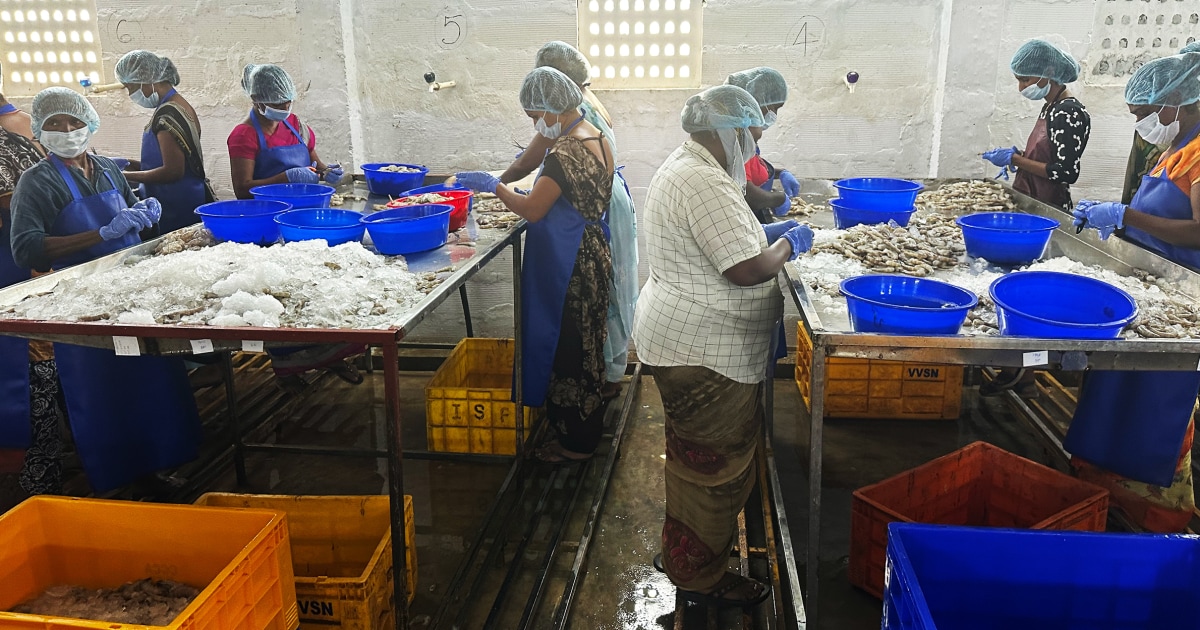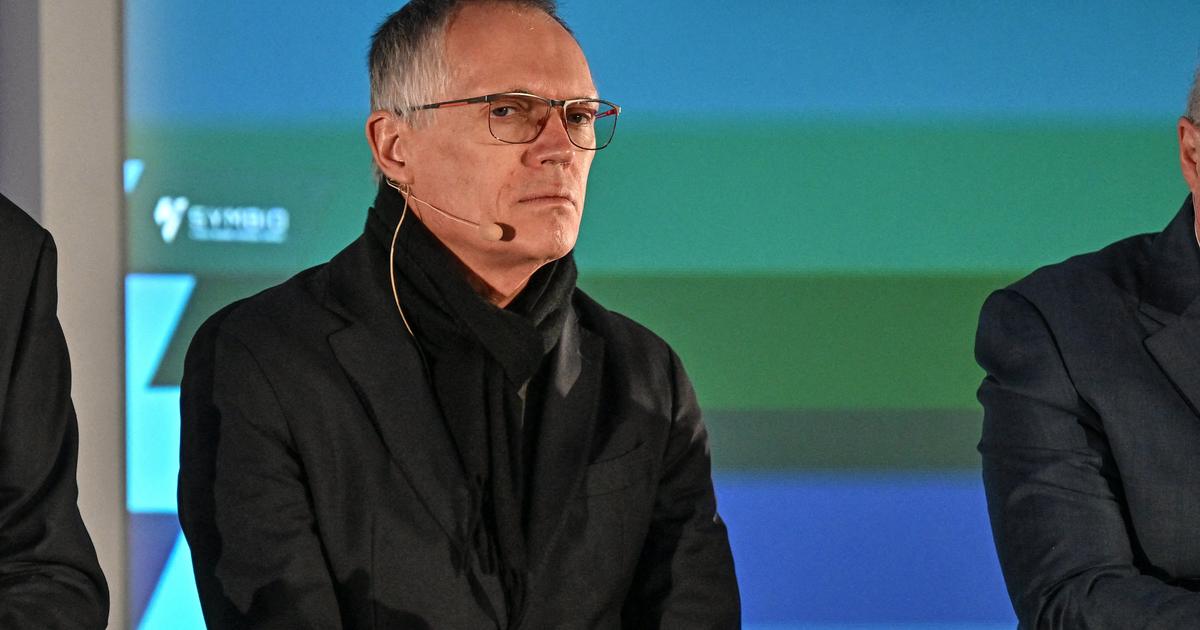Enlarge image
Cotton harvest in Alar, in the Xinjiang region
Photo: Chen jiansheng / Imaginechina / AP
Could it be that companies like Lidl or Hugo Boss are guilty of enslaving people?
That you helped to violate the rights of Uyghurs who have been suppressed by the Communist Party in Xinjiang Province in northwest China for years?
At least that is what a lawsuit by the European Center for Constitutional and Human Rights (ECCHR) suggests. The Berlin NGO has filed a criminal complaint with the Attorney General for assisting in crimes against humanity. In addition to Lidl and Hugo Boss, the almost 100 page long ad is directed against Aldi and C&A. The specific allegation: The German companies are said to have had direct or indirect supply relationships with textile companies that are involved in the state forced labor program in Xinjiang.
The accused companies reject the allegations and stress that they will not tolerate forced labor. Aldi let it be known that it has not had any supply relationships with companies in the region for a long time. C&A just says they don't buy clothes from manufacturers based in Xinjiang Province. In the Group's sustainability report from October 2020, however, it can be read that the group has "in the meantime banned production in the region and urged our suppliers to stop purchasing cotton and other fibers in Xinjiang."
Lidl was still purchasing goods from a local supplier until June 2021, but is not planning any further orders there, according to the discounter.
Boss did not answer questions from SPIEGEL.
The company sent ECCHR a statement from which the priority of human rights emerges, but not whether the fashion company from Metzingen is still producing in the region.
Re-education in cotton production
Xinjiang, home of the Uighur Muslim minority, is the center of Chinese cotton production. 85 percent of the country's cotton comes from there - more than a fifth of global production. A large part of it is still picked by hand and processed in the spinning mills and textile companies in the region. In order to be able to better control the people in the region, attempts are being made with the help of hundreds of thousands of party cadres to place shepherds and farmers in paid jobs, often in textile companies. This deportation and the associated re-education takes place via so-called job fairs, but often under duress, as Human Rights Watch and other human rights organizations have repeatedly reported.
The Xinjiang Production and Construction Corps (XPCC), a state-owned company that grows a large part of the cotton in the region and has already used prisoners for harvesting, has a major economic influence in the region. According to ECCHR's complaint, the paramilitary structured XPCC is intended to guarantee the economic development of the border region.
When the EU and the USA imposed sanctions against China in the spring for suppressing the Uyghurs, companies such as H&M and Nike also announced that they would no longer purchase cotton from Xinjiang.
Many of these groups owe their growth primarily to the Chinese market, where, for example, H&M operates over 500 stores.
But after the Communist Party had intoned appropriate counter-propaganda with calls for boycotts through its youth association, some fashion brands suddenly became meek.
Inditex, for example, the parent company of Zara, no longer explicitly mentioned Xinjiang on its website as part of the “zero tolerance policy”, as various NGOs reported.
How big corporations get meek
Boss distinguished himself through an astonishing ethical course. At first they tried to insure themselves not to purchase any goods from direct suppliers in the Xinjiang region. The new collections, it was said last year, did not contain any cotton from the region. In spring 2021, which is also described in the ECCHR lawsuit, Boss gave a short-term assurance on the Chinese platform Weibo that it would continue to source cotton from the Uyghur area. The entry, it was said later, had not been agreed with the headquarters. Boss didn't want to comment on this. In the meantime it is no longer clear whether and how much of the goods Boss still purchases from the region.
In its statement to ECCHR, however, the group mentions the Esquel Group, one of its suppliers, which has some subsidiaries in Xinjiang and also supplies other German companies. Esquel, a Chinese company with headquarters in Hong Kong and tens of thousands of employees, claims to uphold human rights, not to have anything to do with forced labor and to ensure fair working conditions. This has also been proven by audits.
Boss informed ECCHR that he had even carried out "own audits" in the Esquel factories - without having come across any indications of forced labor. "Boss didn't even say who carried out these audits," says Miriam Saage-Maaß, chief lawyer at ECCHR. "Years ago you could hardly afford such a lack of transparency." It also remains unclear how Boss could have carried out its own audits if almost all of the major auditors, such as TÜV Süd, had withdrawn from the region because there were no longer any independent audits there are possible. Saage-Maaß also does not trust the audits that Esquel cites: "As a rule, they come from Chinese auditors - it is hard to imagine that these tests are not carried out under the umbrella of the party."which previously also cooperated with the Chinese state-owned company XPCC, has been on the US sanctions list for some time.
Organic, but fair?
Many organic customers can apparently not be sure whether the products of their choice involve forced labor.
According to an ECCHR study, companies in Xinjiang are also certified according to the Global Organic Textile Standard (GOTS), an organic standard used around the world.
According to the study, a GOTS-certified linen producer even belongs to the paramilitary state company XPCC.
A GOTS spokeswoman names two certified companies in the region, there is no linen producer in the database.
In additional scheduled audits from the Xinjiang region, "no irregularities were reported".
The current complaint from ECCHR to the Attorney General is not the first of its kind. The lawyers from Berlin have already caused a stir several times with similar proceedings. The best known is probably the one against the textile discounter Kik, whose Pakistani suppliers died nine years ago due to a lack of fire protection. However, the civil action was dismissed due to the statute of limitations.
Enforcing human rights through legal channels does not seem easy: The new German supply chain law only provides local companies with limited responsibility to direct suppliers - and Saage-Maaß fears that such cases may be too complex for the Federal Prosecutor. "In terms of international criminal law, it would be imperative not only to prosecute direct perpetrators, but also to investigate actors who are helping to keep this system alive."






/cloudfront-eu-central-1.images.arcpublishing.com/prisa/DIAGMBIFCBFTJADD5SB7GXXY2A.jpg)


/cloudfront-eu-central-1.images.arcpublishing.com/prisa/7FWSL2MJ4FD5TOM366ZNU2RLTU.jpg)

